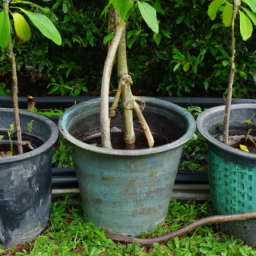Gardening Helping the Environment
How Gardening Helps The Environment
Benefits of Gardening for The Environment
Gardening can be an enjoyable, therapeutic hobby - but it's more powerful than you think! By using sustainable methods and all-natural materials, gardening is excellent for both you and the environment. Here, we'll explore the features, benefits, pros & cons, case studies, FAQs, mistakes people make and best practices of gardening to help the environment.
Features
Gardening has been used for centuries as a form of soil conservation. When done correctly, it can reverse the effects of soil erosion, protect biodiversity, and even help create new wildlife habitats. Plus, gardening helps reduce carbon dioxide. Plants help reduce the amount of carbon dioxide that's released into the atmosphere by absorbing and storing it.
Benefits
Gardening has a wide array of environmental benefits. The practice helps conserve soil, provide habitats for wildlife, and help reduce air and water pollution. Humans also benefit from gardening, thanks to the exercise and stress relief it offers. Plus, gardening may produce a variety of nutritional benefits, depending on the crops you choose.
Pros and Cons
Gardening has many positives, including fresher air, better soil quality, and a connection with nature. It can also save families money on their grocery bills and allow them to learn a valuable life skill. The primary drawback of gardening is the cost and time it takes to maintain it. Additionally, pest problems, climate constraints, and a lack of knowledge may make gardening a challenge.
Case Studies
Gardening is a viable way to help the environment, and there are a few recent case studies that prove it. For example, in 2013, Detroit began adapting parts of its public spaces to gardening. The effort helped to reduce food insecurity in the city and bring people together. Additionally, community gardens in Baltimore saw a decrease in electricity consumption and air pollution. Both of these studies prove the positive impacts that gardening can have on the environment.
FAQs
Q: What kind of materials should I use when gardening?
A: You should always use all-natural, sustainable materials when gardening. Compost, organic soil, and natural mulch are the best materials for gardening. Avoid using any synthetic materials or fertilizers, and make sure the water you use is clean.
Q: How can gardening help the environment?
A: Gardening can help the environment in a variety of ways. It helps reduce soil erosion, conserve soil, and protect biodiversity. Additionally, plants absorb carbon dioxide, reducing pollution in the air. Finally, gardening helps create habitats for wildlife, so they're able to live and thrive in a safe environment.
Mistakes People Make
Gardening is a valuable skill, but there are some potential pitfalls to avoid. Overwatering is one of the most common mistakes; if you're not careful, you can end up drowning your plants. Failing to protect your plants against pests is another common mistake. Make sure to use natural pest repellents or physical barriers to keep pests away.
Best Practices
There are a number of best practices to consider before, during, and after you start gardening. To start, research the climate in your area and choose plants that are compatible. During your gardening process, use healthy soil, consider water-saving techniques, and protect your plants against pests. Once you're done, use natural mulch to fertilize your soil and encourage growth.
Summary
Gardening can be a fun, relaxing activity for people of all skill levels. Done correctly, it can help soil erosion, conserve soil, protect biodiversity, reduce air and water pollution, and create habitats for wildlife. It can also save families money on their grocery bills and offer enhanced nutrition. To learn more, consider researching climate conditions in your area and using natural, sustainable materials during your gardening process.
Final Notes
Gardening can help the environment in many ways. To get the most out of your gardening experience, research your climate conditions, use sustainable materials, and protect your plants against pests. Ultimately, gardening is an enjoyable activity that can benefit you and the environment.

Previous Page
Next Page
